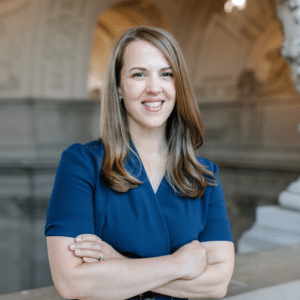
By ProFellow Founder, Dr. Vicki Johnson
One of the big “unspoken” steps in applying successfully to PhD programs is conducting faculty outreach before applying. This step is necessary to find research alignment with a faculty member or members who might serve as your PhD advisor if you are accepted to the program, and necessary to ensure you’ll receive adequate support! PhD advisors are faculty members who will serve on your dissertation committee and will be officially responsible for advising you throughout your graduate school career. You want to identify potential faculty mentors before applying because your relationship with them will be pivotal to your success as a graduate student. They will meet with you regularly to give you feedback, guidance, and support on your research dissertation, and so it’s important that your PhD advisor has similar academic research interests.
I advise PhD applicants in my Fully Funded Course and Mentorship Program to speak with potential advisors as soon as possible in the graduate school application process. Outreach is step 1. But once you have a meeting set with a potential PhD advisor, you might be thinking – what now?!
Knowing where you start with contacting potential advisors can be daunting and intimidating–especially if you don’t know the questions to ask! Here is a step-by-step guide to get started.
How to Find Potential PhD Advisors
It’s not always obvious which faculty members will be available to serve as your PhD advisor. I provide some tips in this article on how to find your ideal PhD advisor using Google Scholar. But before sending off cold emails to faculty it can be prudent to first ask the Admissions contact (typically the Department Chair) for some guidance. Here are two questions to ask:
- Which faculty members will be advising incoming PhD students?
- Would it be ok if I reached out to faculty in the Department directly to discuss my proposed dissertation topic?
Next you might be wondering, if I set up these meetings, what questions should I ask potential PhD advisors? Let’s discuss the goals of these meetings and specific questions you can ask.
Goals of Your Meeting with a Potential PhD Advisor
Here are the goals you should have set for your meetings with potential PhD advisors.
#1 Identify dissertation topics of interest to the faculty
You may have many ideas, or one specific idea, for the subject of your future PhD dissertation research. But it’s important that you identify faculty members at PhD programs who would be enthusiastic about supporting your proposed research. You can share your broad ideas for research topics that interest you, but it is in your best interest to ask these scholarly experts what innovative topics interest them. They will know the current research landscape and what topics will be of interest to the discipline and to funding bodies. So first, you’ll want to use this opportunity to learn more about their research interests and recent publications.
#2 Identify sources of funding
Often, faculty are pursuing research in response to funding opportunities from external sources like government, corporate and non-profit grants. Often, faculty will use large grant funding sources to provide full funding packages to their selected PhD students. Therefore, it’s important for you to know what research topics are of interest to funding bodies, so that you can achieve funding from the university as a graduate student! Many PhD programs offer full funding, which provides a stipend and a tuition waiver in exchange for taking on some teaching or research duties. Full funding offered by the university is THE way to fully fund your PhD, as there are very limited sources of external funding that you can apply for to cover your tuition and living expenses.
# 3 Build rapport
These meetings will also help you determine if the faculty member is a good fit for you and will be supportive and inspiring to work with. In addition, they may advocate for your acceptance if you build goodwill and rapport with them.
How to Prepare for a Meeting with a Potential PhD Advisor
Before your meeting, be sure to review their university profile and recent research publications. You can check out the faculty’s university profile as well as their profile on Google Scholar, if they have one. Also review which students they currently supervise and their dissertation topics, if possible. Often current PhD students are featured on the university’s website with name of their faculty supevisor. You might also want to investigate the university’s website for any news about major research grants awarded in the last 3 years, which might give you some clues about funding sources for the PhD students there.
Questions to Ask a Potential PhD Advisor
- What areas of research can I get involved in as a graduate student within this program? OR Does my proposed research subject align with the interest areas of you and other faculty in the program?
- Are there any research topics that I should consider for my dissertation proposal? What research topics would meet an urgent need or would address a timely issue in the discipline?
- What type of methods are your PhD students using in their research? Do any of the current students have a particularly interesting approach to the research that they’re doing?
- Is there anything you recommend I do to ensure I would be eligible to receive funding if am I accepted to the program?
- Are there any students that you recommend that I speak to for insights on the PhD program?
What if Faculty Don’t Respond to Meeting Requests?
Sometimes faculty to do not respond to initial outreach emails. There are numerous potential reasons for this – including that they are extremely busy with current students, or you did not provide enough information about yourself or did not ask a specific question, or the Department has a blanket policy on communicating with aspiring applicants, or they simply didn’t see your email or forgot to respond. A non-response from any graduate school contact does not equate to rejection. Let me repeat. Non-response does NOT mean rejection!
For those not hearing back, I can tell you with certainty that the lack of a response is NOT the result of someone who doesn’t appreciate your email. Consider with empathy that your email message may be a low priority among a huge list of demands. Politely follow-up in one week’s time, but don’t take it personally if you don’t hear back! Instead, contact the Admissions or Department Chair to find out the best way to connect with faculty in the Department for the next steps, and also be sure to attend program information sessions that may be offer.
Best of luck! The ProFellow community is rooting for you!
Applying to graduate school and seeking full funding opportunities? Get our FREE 73-page Directory of Fully Funded Graduate Programs and Full Funding Awards listing 1,000+ programs here!

Dr. Vicki Johnson is Founder and CEO of ProFellow, the world’s leading online resource for professional and academic fellowships. She is a four-time fellow, top Ph.D. scholar, Fulbright recipient and an award-winning social entrepreneur. She is the Creator and Director of Fully Funded, an award-winning online course and mentorship program for graduate school applicants seeking to find and win full funding.
© Victoria Johnson / ProFellow, LLC 2021, all rights reserved.